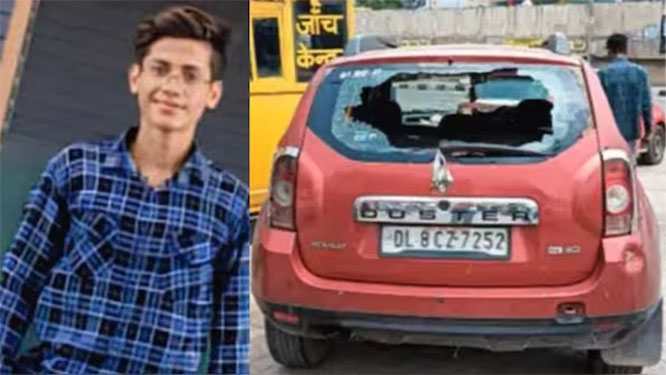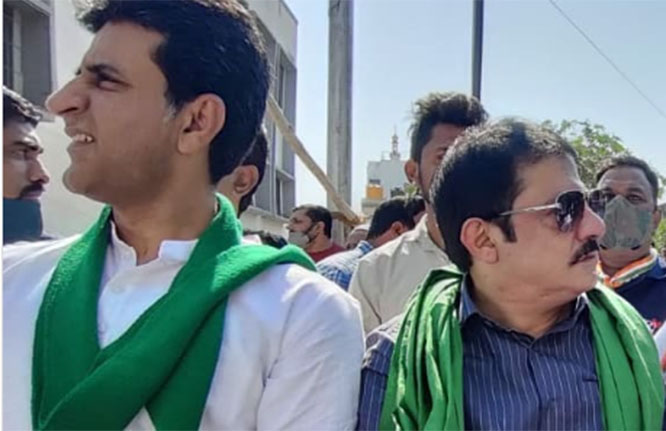
A 19-year-old boy, studying in Class 12 in Haryana’s Faridabad, was chased in a car and shot dead by a group of five cow vigilantes who allegedly mistook him for a cattle smuggler, police said on Tuesday.
A Duster car in which the boy, Aryan Mishra, and his friends Harshit and Shanky as well as two other women seated in the back of the vehicle, was chased by the members of cow vigilante group on the night of August 23 for about 30 kilometers near Haryana’s Gadhpuri on the Delhi-Agra National Highway.
Police have identified and arrested all the five accused – Saurabh, Anil Kaushik, Varun, Krishna and Adesh. A report by Hindustan Times quoted police sources as saying that the weapon used to kill the victim was illegal.
All the five accused cow vigilantes were grilled by the cops who revealed that they had received information that on the night of August 23, some suspected cattle “smugglers” were carrying out surveillance in the city in Renault Duster and Toyota Fortuner and picking up cattle in the area.
The accused also claimed they were told that the alleged cattle smugglers had also called their associates to pick up cows in a truck from isolated areas in the city.
The cow vigilantes, who were also in a car, spotted a Duster at Patel Chowk in which Aryan Mishra was seated with his friends.
The vehicle was being driven by Harshit and was stopped by the accused, but they instead accelerated, following which they opened fire and a bullet hit Aryan Mishra, who was seated in the passenger seat, near his neck.
After Aryan was shot, Harshit pulled over the SUV near the Gadhpuri toll in Palwal, but the attackers approached and fired another shot into Aryan Mishra’s chest, resulting in his death.
The accused saw the women in the car and realised that they had shot a wrong person after which they fled.
Police said despite being asked to stop, Harshit sped the vehicle as Shanky, who was also in the car, was recently involved in a dispute with a man and a case had been registered against him. They thought goons were sent to kill them.
With the SUV not stopping and instead running away, the cow vigilantes thought the cattle smugglers were in it and they started to chase the vehicle which broke through the barrier at the Palwal toll plaza.
The accused have been sent to judicial custody after being presented in a city court.








Comments
Add new comment